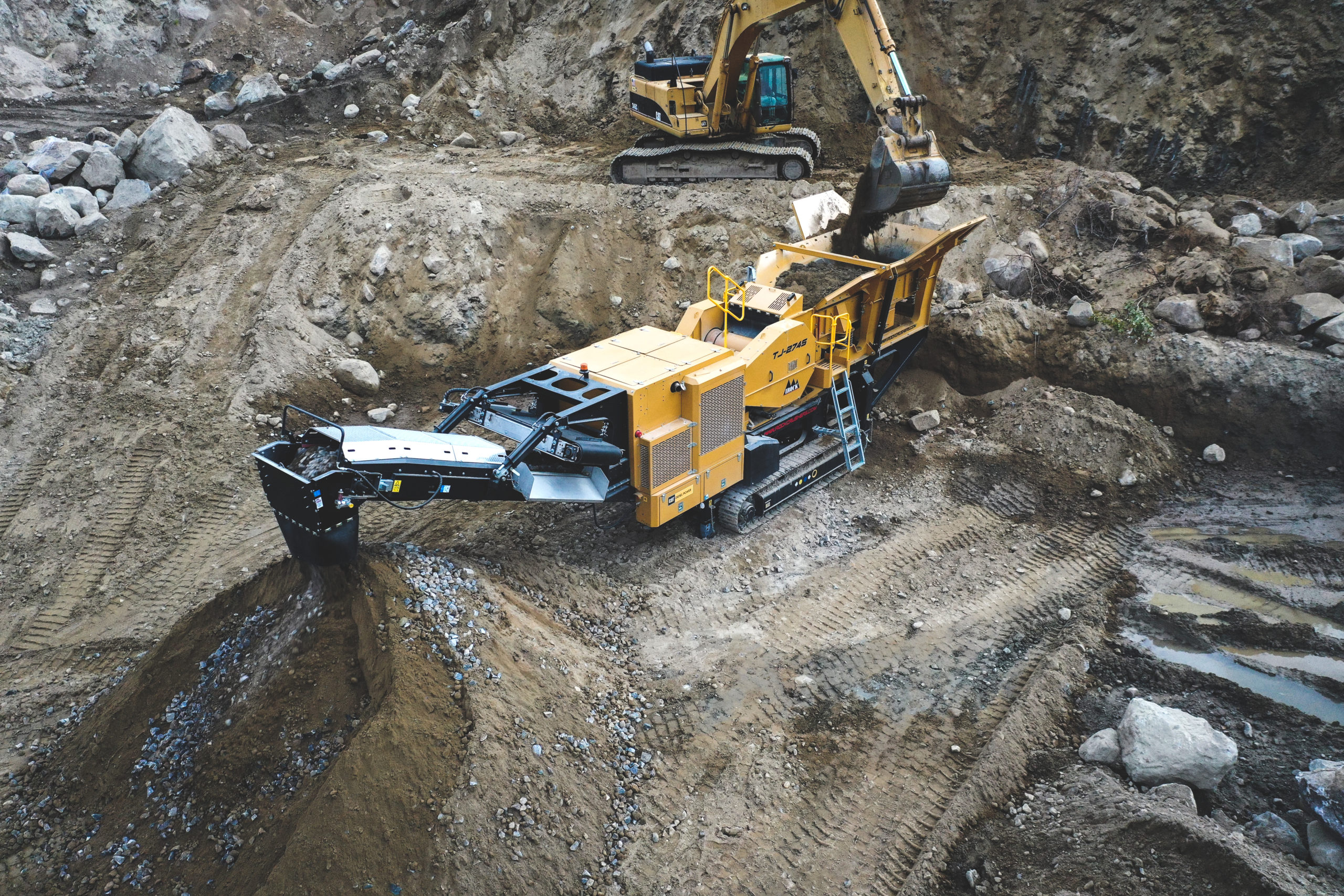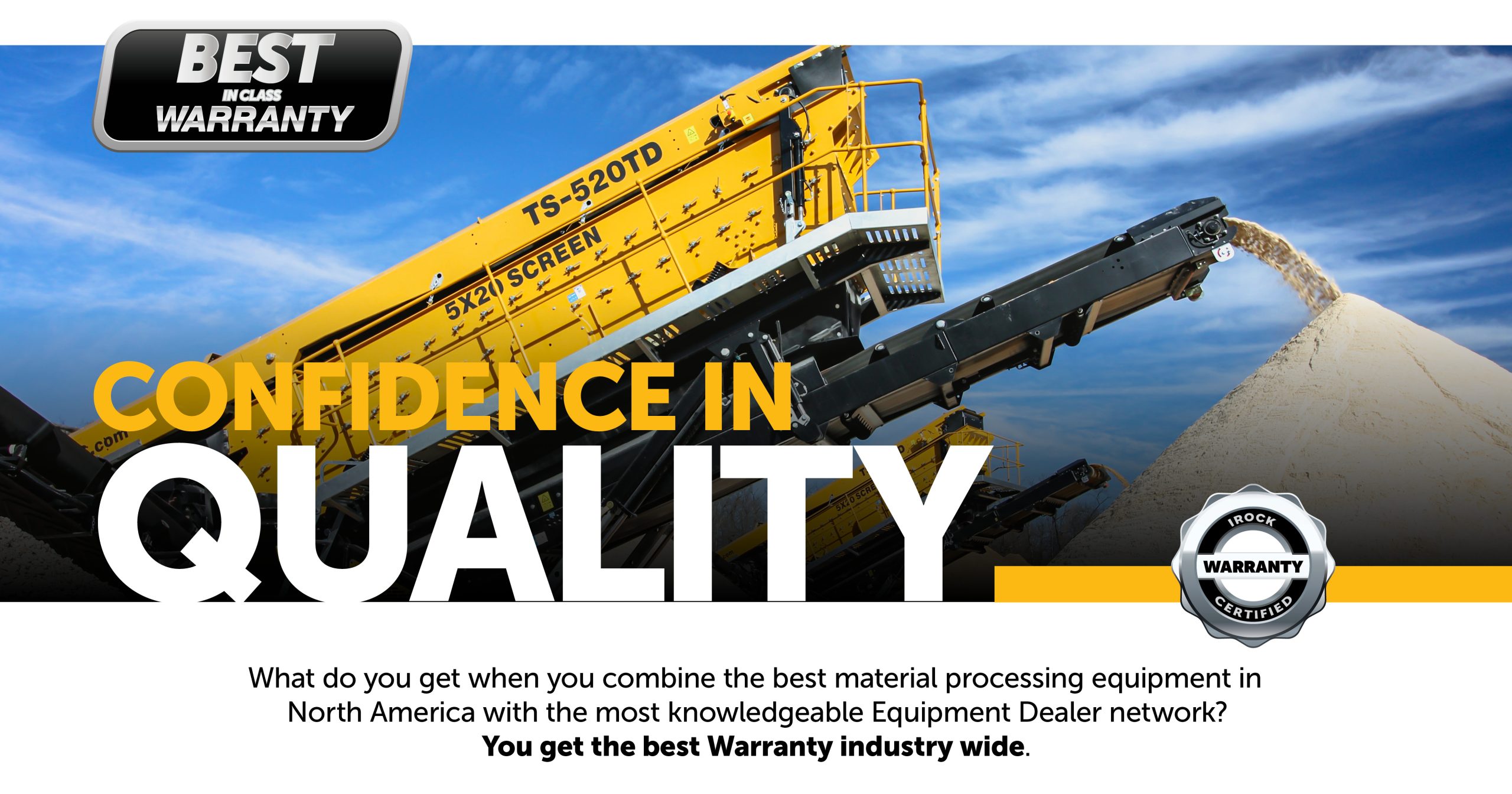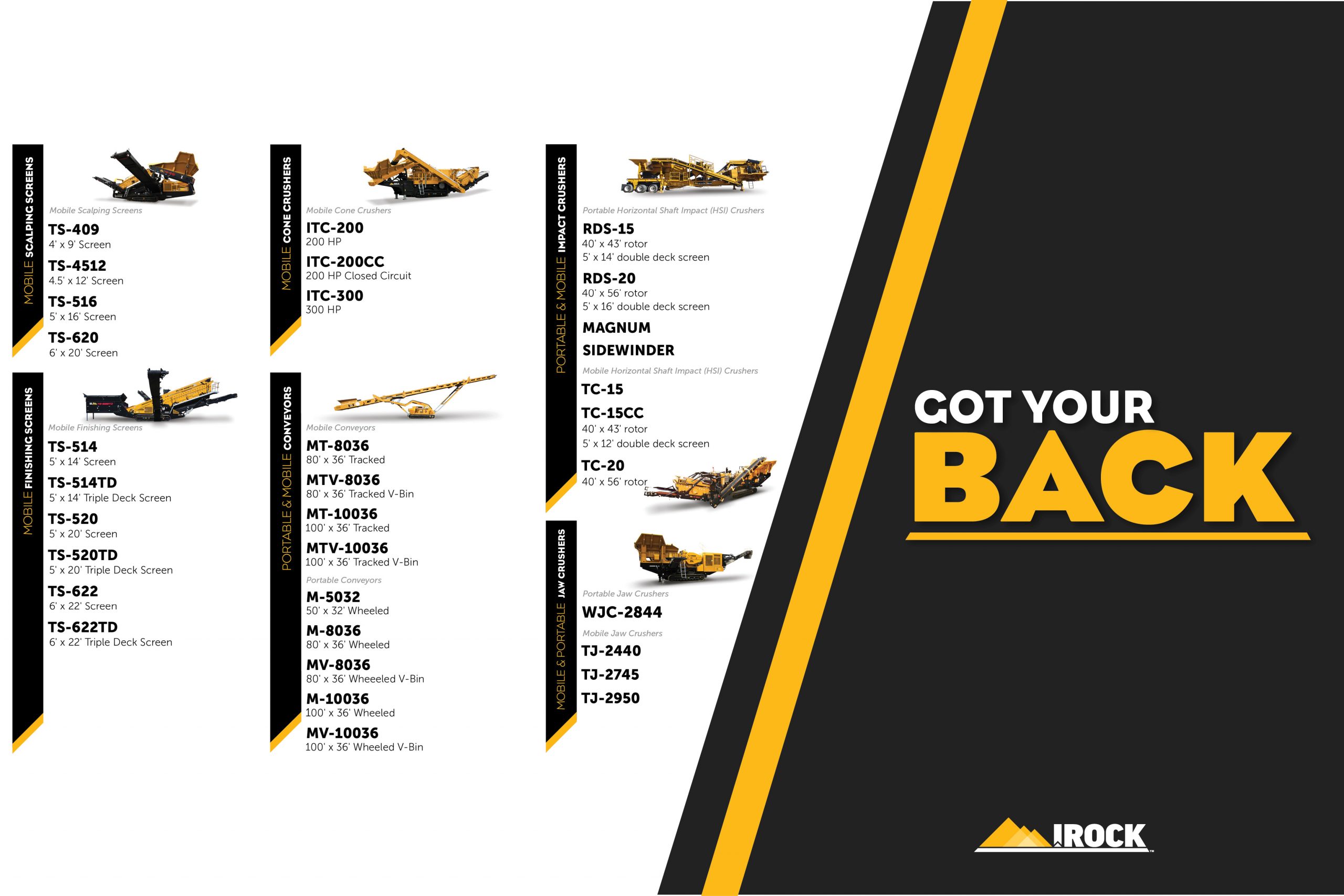Maintenance Tip #3 Always Listen For The Condition of a Feeder and Screen Box
Maintenance Tips from IROCK’s Technical Support & Service Coordinator
Every day, we are reminded to be a better listener. We all get busy. Now more than ever, we need to slow down and take the time to listen. And as a maintenance specialist with years of experience, taking the time to really listen to the equipment may translate to thousands of dollars in savings.
I was on-site recently with an operator who was getting ready for another day of crushing recycled concrete. He set the plant on auto start and stood near the plant to see that all the functions started as expected. When the screen box started, there was a terrible banging noise coming from the back of the plant. Watching to see the operator’s next steps and thinking that he would shut the plant down to check on the offending noise, instead his next step was to start the feeder.
This happens all too often. Once on a job site and hearing similar noises coming from a 6’x20’ screen box it was discovered that the screens in this box were so loose you could hear the banging over the primary and secondary crushers, two front end loaders, and a hammer!.
Both these examples should have been caught on a daily inspection, or simply listening to the equipment. Alarms should be raised by paying attention to any elevated sound level. In both examples, significant damage was done, unnecessary money was spent, and downtime incurred. Feeders and screen boxes should always be checked at the end of each shift.
For equipment operators who take the time, the warnings signs are loud and clear.
-Belt feeders should be inspected for the condition of the belt scraper, flashing, belt tension, tracking, and splicing.
-Vibratory feeders should be checked for loose wear parts, material buildup, proper drive belt tension, worn hydraulic drive components, and proper clearance around the vibrating unit.
-Screen boxes should be checked for loose or broken screens, worn crown bar rubber, foreign material, such as rebar, and material build up. Along with checking the physical condition of the screen panels, the operator should check for blinding or pegging of the screen panels.
Side Note: Many customers will choose screen panel wire diameters that are thicker, and will last longer, requiring less frequent changing. While there is some merit to that thought process, there is also merit to the idea of thinner wire, that increases the efficiency of the screen, by increasing the open area inside the box, while still sizing the product properly.
Howard Malhado
Technical Support & Service Coordinator




